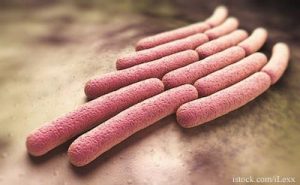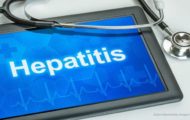The Kansas City Missouri Health Department is issuing an alert about the number of reported Shigella cases in that area. This illness is an infectious diarrheal disease caused by the Shigella bacteria. There are usually only about 10 cases of Shigella every year in that city, but since January 1, 2015, there have been more than 190 cases reported to public health officials. That is up from 143 cases reported in late September.
 And about 60 students at Faxon Elementary School have become ill and may have the illness. The symptoms the children are experiencing are similar to Shigella poisoning. There are actually three different strains in this particular outbreak, making the illness difficult to treat.
And about 60 students at Faxon Elementary School have become ill and may have the illness. The symptoms the children are experiencing are similar to Shigella poisoning. There are actually three different strains in this particular outbreak, making the illness difficult to treat.
Shigella bacteria are found in the feces of humans and other primates. The illness, called shigellosis, or bacillary dysentery, has the main symptom of diarrhea. Other symptoms include abdominal pain, stool with blood or mucous, the urge to go to the bathroom when your bowels are empty, vomiting, and fever. Young children may develop convulsions or seizures.
Most people get better within a week without medical treatment, but some become so ill they must be hospitalized. Other people may be ill for months before bowel movements are normal again.
Some Shigella patients can develop hemolytic uremic syndrome (HUS), an illness that can cause kidney failure, strokes, seizures, and death. Other patients can develop Reiter’s syndrome, which causes reactive arthritis and irritable bowel syndrome.
Most shigellosis outbreaks are caused by the oral-fecal route. This means that someone who is sick goes to the bathroom and doesn’t wash their hands well, and then passes the bacteria on to another person, who ingests it. It can take only 10 Shigella bacteria to make someone sick. The bacteria is present in the stool for at least two weeks after symptoms have disappeared.
People get sick by eating contaminated food, drinking contaminated water or beverages, or swimming in contaminated water. If a sewer has spilled into a lake or pool, it can become contaminated with Shigella bacteria.
If a patient is treated with proper antimicrobials, the time they are infectious can be reduced to a few days instead of four weeks or more. Some of the strains in the current outbreak in Missouri are resistant to some antibiotics.
To prevent a Shigella outbreak, wash hands frequently, thoroughly, and correctly with soap and warm water. Use paper towels for drying your hands instead of cloth towels, and dispose of them after use. Anyone who has a diarrheal illness should not prepare or serve food or drinks for others. Diapers must be disposed of correctly, and hands washed immediately with soap and water. Disinfect diaper changing areas with household bleach, Lysol, or bactericidal wipes.
Most people should have one or two negative stool samples before they can return to work or school. Anyone who works with food requires two negative stool samples.
If you live in the Kansas City, Missouri area and have been experiencing these symptoms, please see your doctor. If your children have had diarrhea, take them to the pediatrician.




